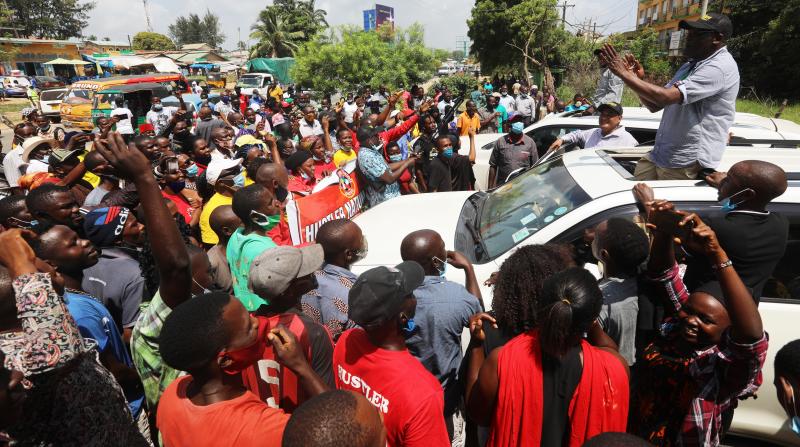×
The Standard e-Paper
Smart Minds Choose Us

President Uhuru Kenyatta’s reintroduction of Covid-19 containment measures has dealt a blow to the political class who are not allowed to hold any political gatherings for the next 30 days.
During his televised address to the nation from State House on Friday, President Kenyatta spelled out new containment measures, chief among them the ban on political gatherings for one month.